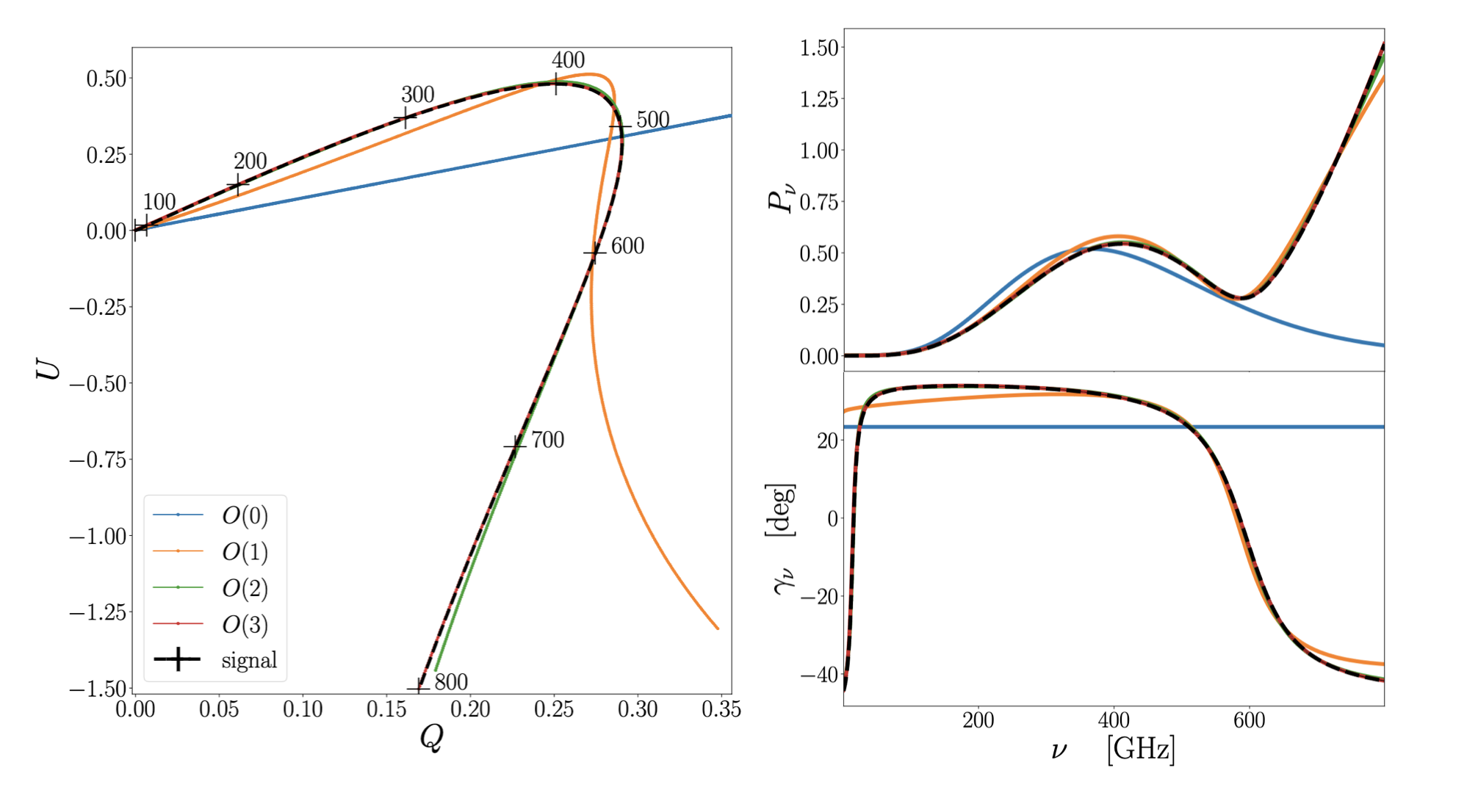Developing new methods to deal with the CMB polarized foregrounds.
The moment expansion: generalities
My main research interest is to develop and test innovative methods in order to face the foreground challenges for $B$-mode detection with present and future CMB missions. My primary focus in the past years was to investigate the moment expansion method proposed by Chluba et al (2017). This method was developed to treat the distortions of the foreground signal coming from averaging effects. Indeed, the spatial variation of the physical conditions of emission in our Galaxy, significantly distort the total Galactic signal.
Application of the moment expansion for component separation

The moment expansion formalism was generalized at the angular power spectra level to analyse Planck data in Mangilli et al (2021). In Vacher et al (2022), I reused and extended this formalism to perform component separation with simulated LiteBIRD data. I demonstrated that, in some simple cases, the moment expansion provided a viable way to clean the foreground signals and recover an unbiased value of the tensor-to-scalar ratio whith an uncertainty compatible with LiteBIRD‘s objectives.
In Fuskeland et al (2023), I reused this pipeline to demonstrate that having access to higher frequency bands allowed to ease the component separation by better characterizing the temperature complexity of the dust signal.
The pipeline is still under devellopment and optimization in order to be applied to other scenarios of increasing generality and complexity. All my codes are available on this GitHub page.
Generalizing the moment expansion to polarization : the spin-moments

I provided the first consistent extension of the moment formalism to the polarization signal in Vacher et al (2023a). To do so, I considered the complex numbers $Q+iU$.
I further extended this formalism up to $E$- and $B$-modes in Vacher et al (2023b). Here, I discovered that the $E/B$ ratio should be a frequency dependent quantity in the presence of polarized mixing. This helped us understand some of the results observed in Planck data (see next section).
Using moment expansion for Galactic science
[Guillet et al (in prep)]
Wavelets and more
Regaldo-Saint Blancard (2022).
The $LiteBIRD$ instrument
The Simons obervatory
Theories of gravity and fundamental constants
Scalar fields and String theory
Using Euclid to probe gravity
Euclid